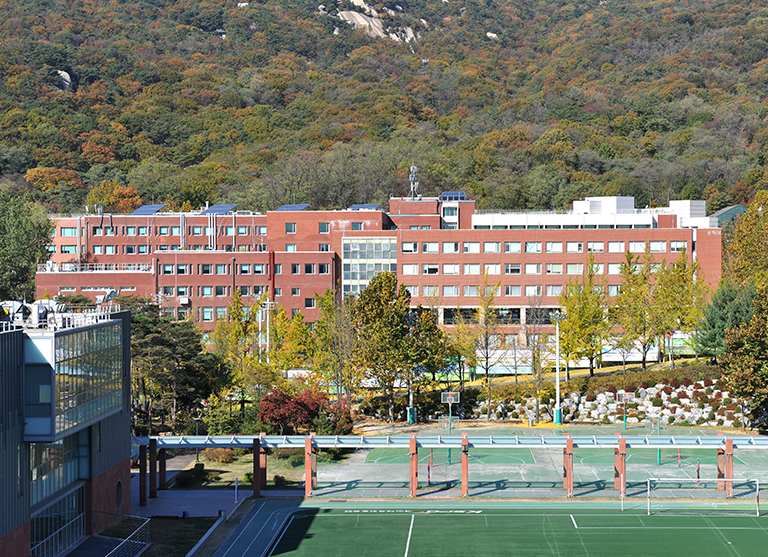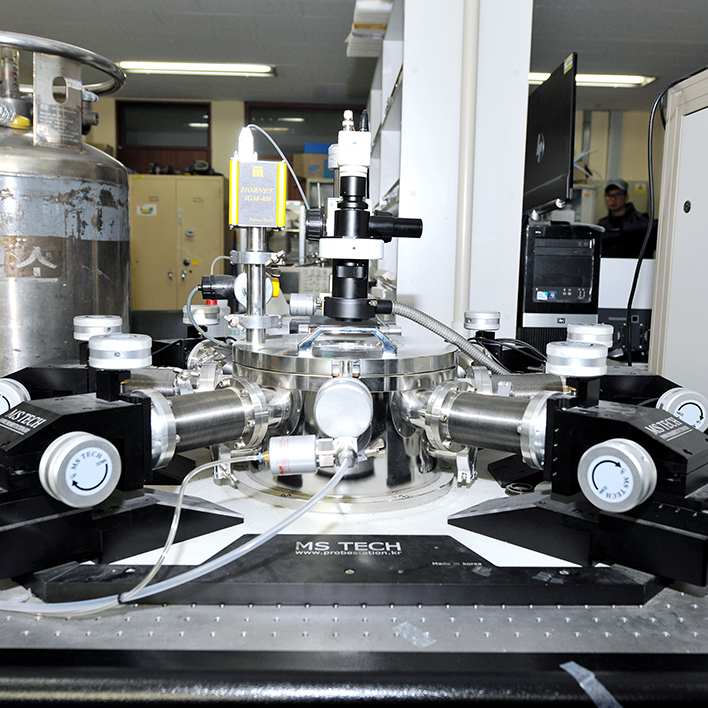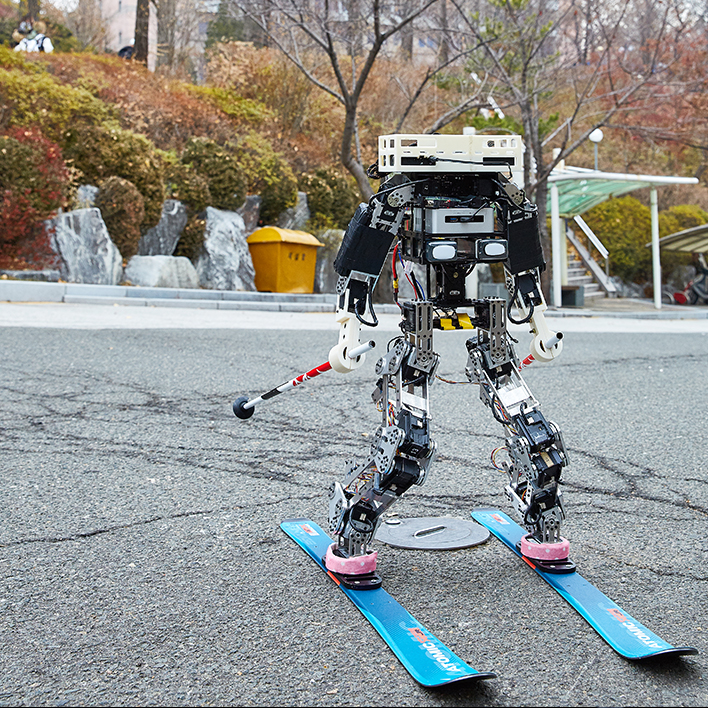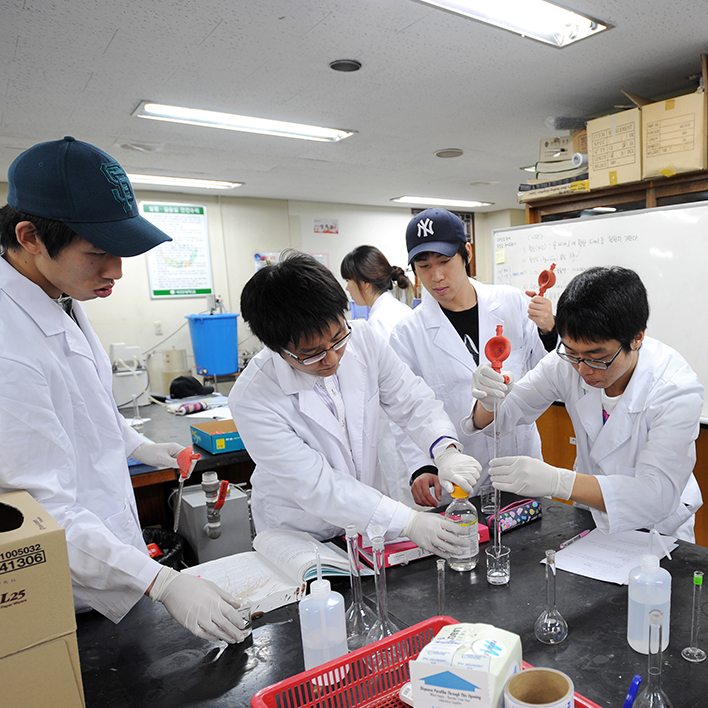
Kookmin College of Creative Engineering, which has over 40 years of history and tradition, currently consists of four undergraduate schools: School of Materials Science and Engineering, School of Mechanical Engineering, School of Civil and Environmental Engineering and School of Electrical Engineering. The College of Creative Engineering has produced a number of qualified scientists and engineers who are contributing to the happiest societies of our future by educating students with its excellent curriculum, practical education, and the specialized research experience. Kookmin College of Creative Engineering has strengthened the research competitiveness specialized in each field of engineering by winning a variety of national research projects. Such projects include Priority Research Center Program funded by the Ministry of Science, ICT, and Future Planning, the Brain Korea 21 programs (BK21) supported by the Ministry of Education, and leading international research institutes, and the Next Generation of Eco-Innovation technology development project, which leads to the supremacy of research and cooperation with domestic and international research centers. In addition, Kookmin University has been selected for 'University for Creative Korea (CK-II) Project' in 2014 and is recognized as a leading university that provides excellent undergraduate education. The 21st century is the era of knowledge creation. The role of engineers has been essential for establishing our nation as a dynamic hub of global research. Therefore, we at the College of Creative Engineering will exert out utmost efforts to cultivate creative engineers through the provision of specialized curriculum and engineering research.
School of Materials Science and Engineering
In the 21st century, our highly developed industrial and technological information society needs increasingly more creative engineers. In accordance with societal needs, our education system includes stimulating and challenging courses on the fundamental theory and applications of advanced materials engineering. We are focusing on establishing an advanced training cradle, which yields proactive leaders with a high level of expertise and an ability to contribute to improving the technology and economy of our nation.
- Energy and Mobility Materials
- Electronic and Functional Materials

School of Mechanical Engineering
Since its launch as the Department of Mechanical Engineering in 1974, Kookmin University’s School of Mechanical Engineering has continuously evolved in step with changes in society and industry. In 2010, the School was renamed the School of Mechanical Systems Engineering and began operating specialized majors. This was followed by the establishment of the Convergence Mechanical Engineering Major (2015) and the Mechanical and Energy Engineering Major (2017), through which the School has offered major-specific, specialized curricula. Since 2022, however, the School has unified its program under a single Mechanical Engineering Major, removing boundaries between majors and supporting students in developing interdisciplinary thinking and flexible career pathways. The School pursues interdisciplinary education and research that integrates the core areas of mechanical engineering—such as design and manufacturing, robotics/bio-systems, and energy and environmentally friendly technologies—with emerging industries of the future, including AI, data-driven design, and smart manufacturing. To cultivate talented individuals equipped with problem-solving skills and creativity in the rapidly changing industrial landscape and the era of the Fourth Industrial Revolution, all members of the School work together to reflect and act. In addition, based on ABEEK (Accreditation Board for Engineering Education of Korea) accreditation, the School operates a balanced curriculum that integrates theory, practice, and design. Graduates advance into a wide range of fields, including leading domestic and global industries, research institutes, public institutions, and graduate programs.
- Mechanical Engineering

School of Civil and Environmental Engineering
Civil engineers are concerned with all aspects of engineering, including the conception, planning, design, construction, operation, and maintenance of major physical works and facilities that are essential to modern civil life. Civil and Environmental engineering projects are typically characterized by their scale, complexity, durability, and cost. Some examples include bridges, subways, roads, tunnels, coastal facilities, dams, foundations, sewerage and sewage treatment facilities, water supply and purification systems, and various transportation facilities. Students participate in laboratory studies as well as classroom activities and become proficient in the use of computers for problem solving and design. In civil and environmental engineering, the courses extend to the areas of structural, geotechnical, hydraulic, environmental, and transportation engineering. The School of Civil and Environmental Engineering offers a specialized undergraduate program accredited by ABEEK (Accreditation Board for Engineering Education of Korea).
- Civil and Environmental Engineering

School of Electrical Engineering
-
The School of Electrical Engineering aims to cultivate leading engineers with strong analytical capabilities, practical engineering skills, and creative problem-solving abilities, particularly in areas related to advanced semiconductor devices and electronic technologies. Our program prepares students to adapt to rapidly evolving industrial environments and develop leadership grounded in technical excellence and engineering management. Students first build a solid academic foundation through essential courses such as logic circuits, digital systems, microprocessors, and circuit theory, and then progress toward specialized subjects spanning six major areas of electrical engineering. Through project-based learning, hands-on laboratory courses, and seminars on emerging technologies, students gain the ability to design and analyze systems related to semiconductor devices, circuits, and systems, along with their fabrication technologies, electronics, information processing, smart systems, and energy technologies. By integrating engineering fundamentals with state-of-the-art knowledge, the School of Electrical Engineering nurtures globally competitive engineers ready to take leadership roles across diverse industrial sectors and contribute to the development of next-generation electrical and electronic technologies.
- Semiconductor and Electronics Major
- Smart ICT Convergence Major
- Mobility and Electrical Engineering Major


















